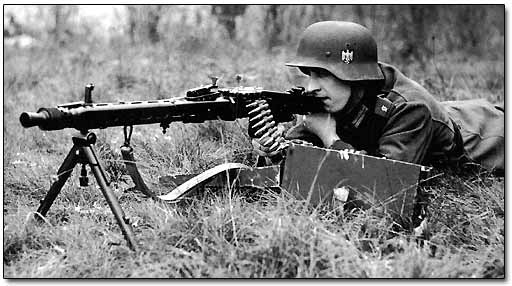Brief History of World War II, p.2
The Eastern Front
The Eastern Front of the European Theater of World War II encompassed the conflict in central and eastern Europe and was fought from June 22, 1941 to May 8, 1945 in which the two principal belligerent powers were Nazi Germany and the Soviet Union.
Eastern Front in 1941
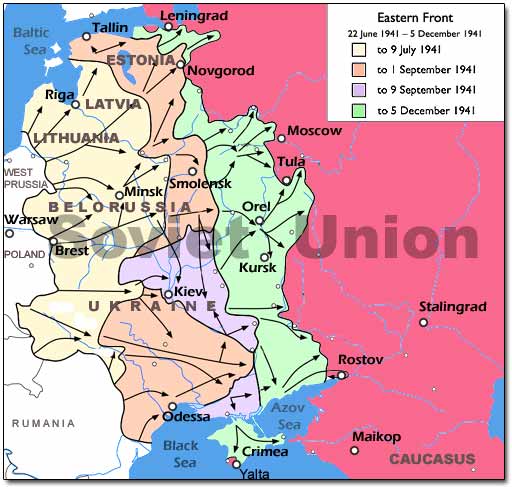
In all Soviet and the majority of Russian sources, the conflict is referred to as the Great Patriotic War, and as War against Bolshevism by the Nazis. Some scholars of the conflict use the term Russo-German War, others use Soviet-German War, German-Soviet War or Axis-Soviet War.
Operation Barbarossa: Summer 1941
Germany's attack on the USSR, code-named "Operation Barbarossa," came on June 22, 1941 when a hundred German army divisions, over three million German soldiers, supported by Finnish and Romanian troops, invaded across a front that stretched over 2,000 miles from the Baltic Sea to the Black Sea.
German Forces Attack
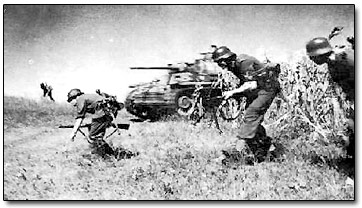
For a month the three-pronged (Army Group North, Army Group Center and Army Group South) offensive was completely unstoppable as the Panzer (armored) forces encircled hundreds of thousands of Soviet troops in huge pockets that were then reduced by slower-moving infantry divisions while the panzers charged on, following the Blitzkrieg doctrine.
German Propaganda Poster in Ukrainian Language
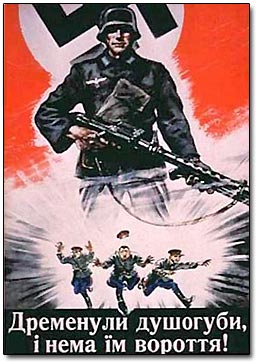
As part of this lightning campaign, the German air force Luftwaffe began immediate attacks on Soviet air fields destroying most of the initially antiquated and inept Soviet Air Force before it left the ground.
German JU-87 Stuka Assault Plane Dropping Bombs
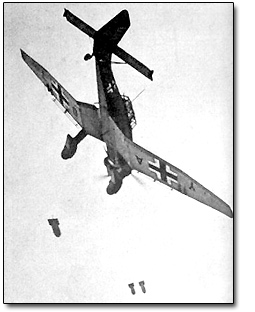
German Luftwaffe Focke-Wulf Airplane Propaganda Poster
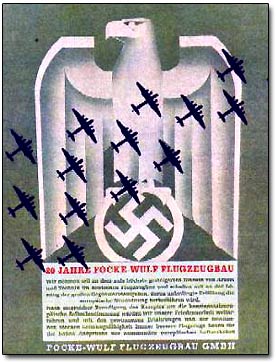
Army Group North's objective was the city of Leningrad (now St. Petersburg) via the Baltic States. Comprising the 16th and 18th Armies and 4th Panzer Group, this formation drove through Lithuania, Latvia, Estonia and the Russian cities of Pskov and Novgorod.
German Motorized Troops
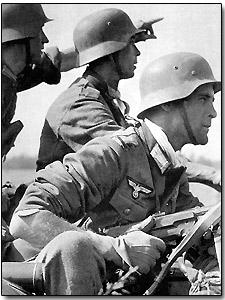
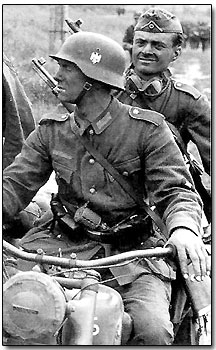
German Sub-Machine Gunner
